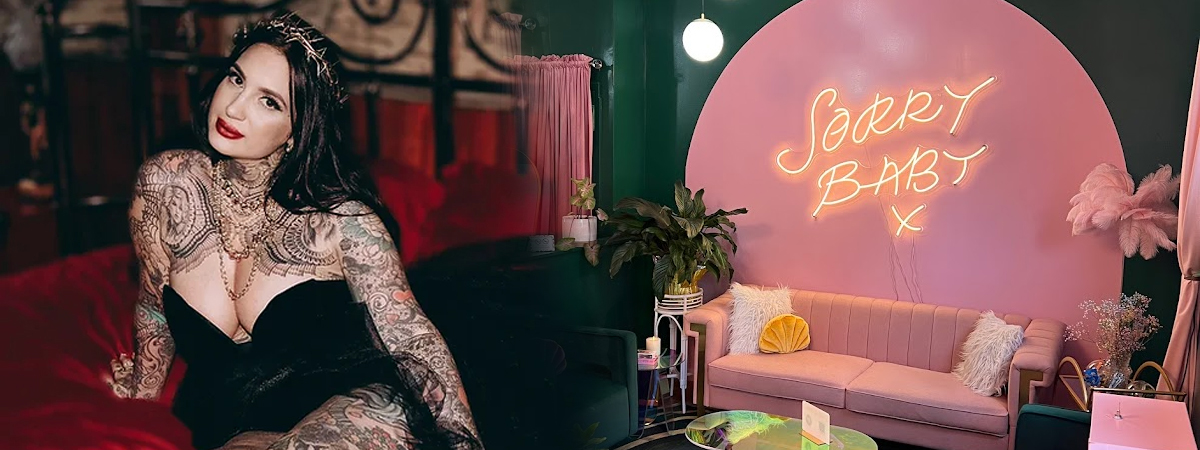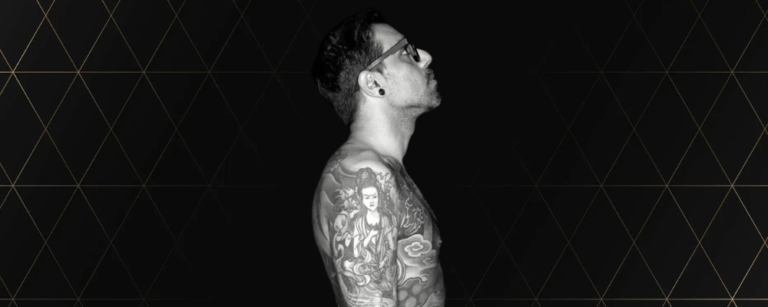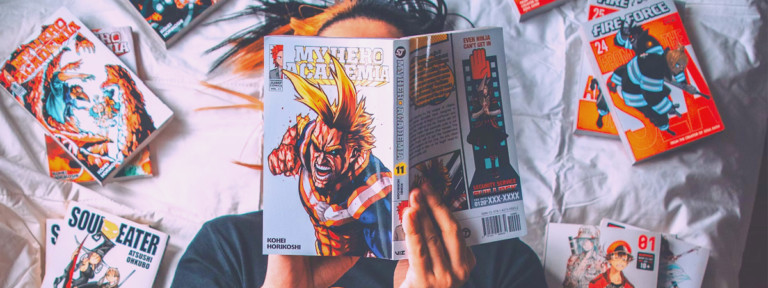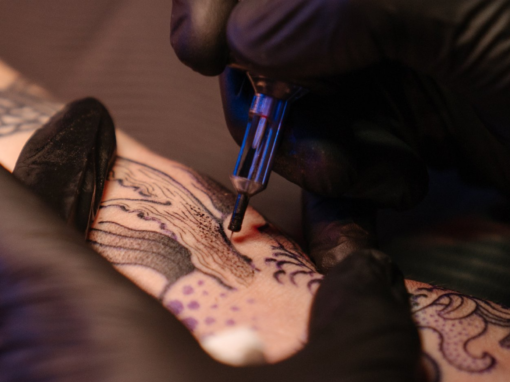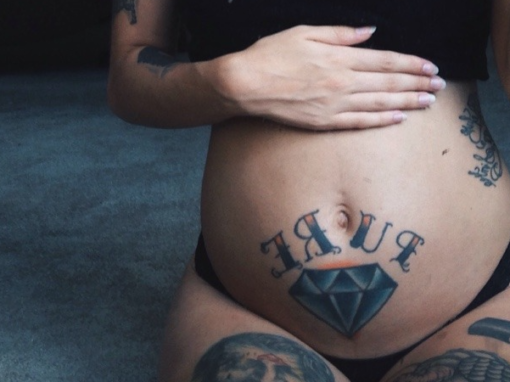“A lot of people get tattoos as a trauma response, as a way to reclaim their body.” Renowned New York tattoo artist Jessica Valentine knows better than anyone what it means to be a woman in the tattoo industry. This was the impetus for her to open her studio, a safe place for anyone in need.
We organized a special interview with Jessica and asked her about her career path and what it means to be a female tattoo artist in a male-dominated industry.
Meet Jessica Valentine
She is the very embodiment of the phrase “I want it, I got it.” Jessica Valentine is a revolutionary tattoo artist, someone who is always ready for new challenges. The proud owner of Haven, quite literally, as it is the name of her private tattoo studio founded in Brooklyn.
Her work has garnered widespread recognition, with features in more than a dozen renowned press outlets like The New York Times, Inked Magazine, Nylon Magazine, and many more!
Jessica is a master of traditional and fineline tattooing techniques, and in over 10 years of practicing, she has developed her style, which she calls “bubblegum-traditional.”
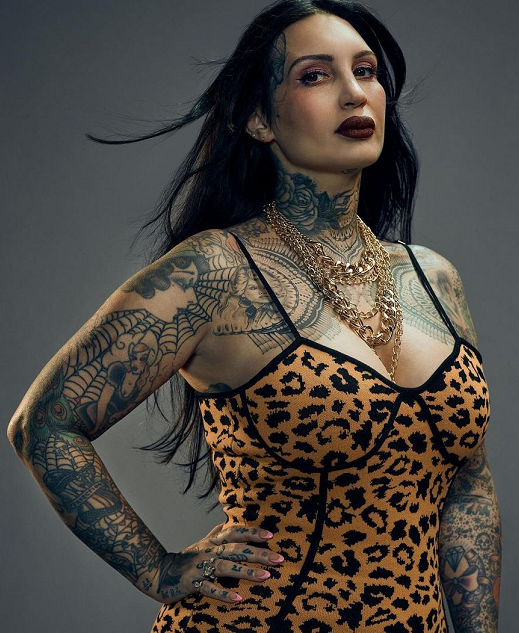
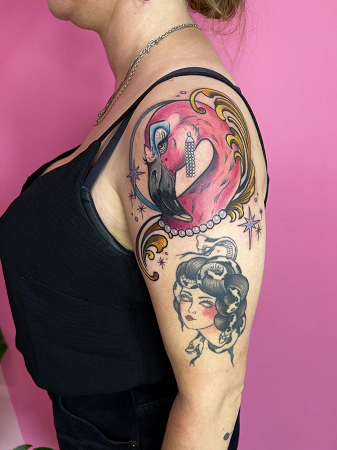
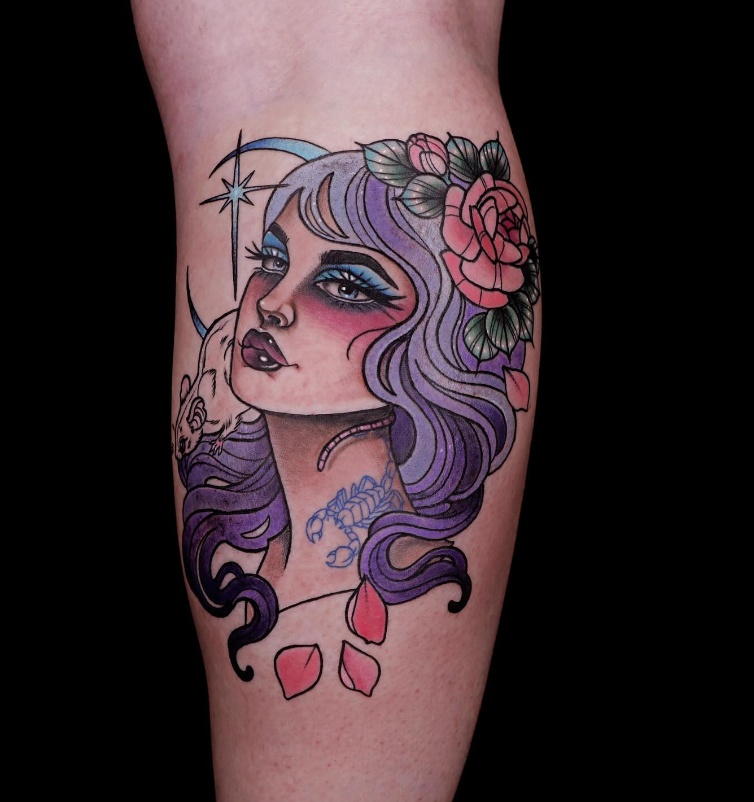
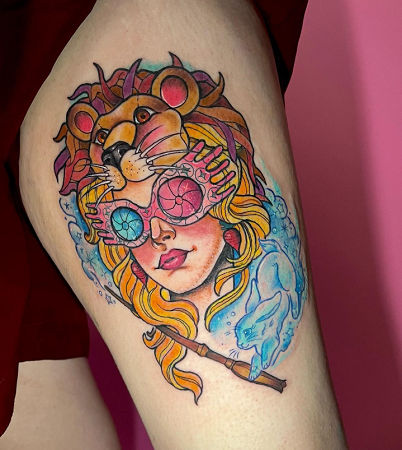
Going Into Business
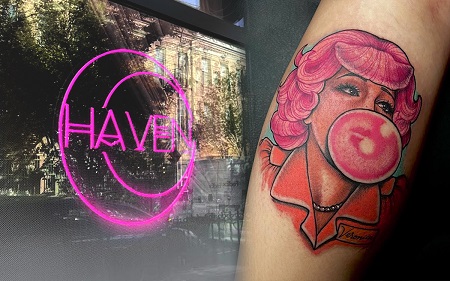
You could say that she started building her career at the age of five, it was her calling. Although it might seem strange because no one in her family has ever had a tattoo. But Jessica’s words make it clear how important it is to appreciate your childhood friends.
“No one in my family had tattoos, but my best friend’s grandfather was covered in tattoos that he got in the Navy. From the moment I saw them, I was transfixed by them, and I just knew I wanted to be tattooed and get a tattoo,” says Jessica.
The girl grew up, stopped playing in the toy tattoo shop and drawing with a marker, and began to think about real tools. At first, she worked at a Nice Studio Parlor, but due to her disagreements with the owner, she decided to pursue her goal of creating a safe, judgment-free tattooing space for women and members of the queer community.
That was the moment when her Haven studio was created in 2019, along with Jessica’s partner.
“I am fortunate enough to have so many memorable clients, whether it is their tattoo design or just their personality. From celebrities to people who have made me quite uncomfortable, lol. I’m fortunate enough to have made some people who have gone from clients to friends.”
Q&A: Jessica’s Approach to Her Work
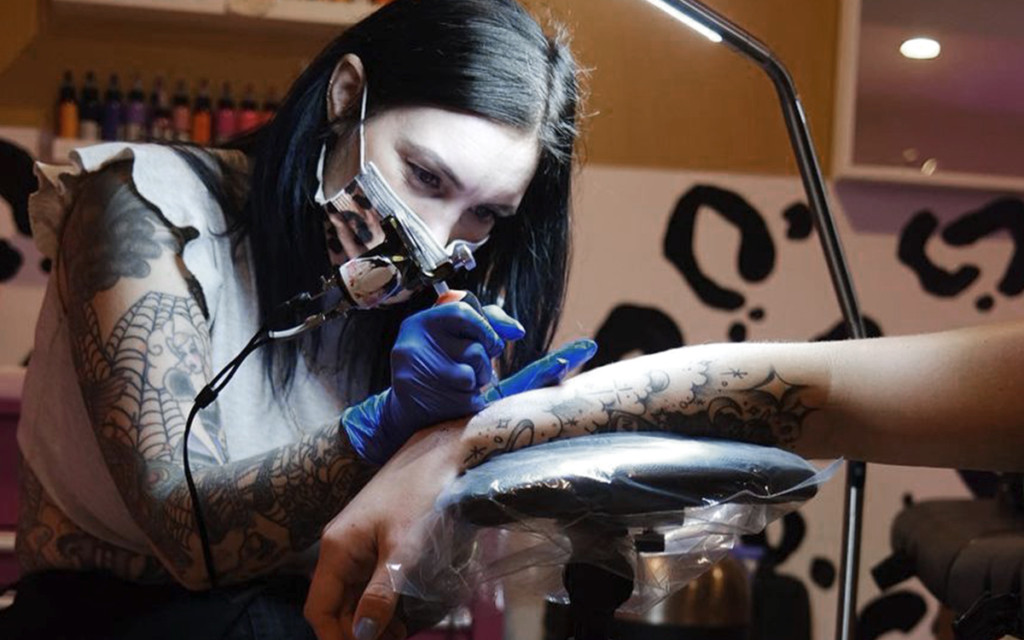
While we had time to talk to Jessica, we asked her a few questions about her work and got some interesting tips on how to relieve pain during tattooing.
We organized a special interview with Jessica and asked her about her career path and what it means to be a female tattoo artist in a male-dominated industry.
Q: What’s the most challenging tattoo you’ve ever done, and how did you overcome it?
Jess: There’s no such thing as “the most challenging tattoo” because it depends. It could be a really difficult client to tattoo because they’re not sitting well or because their skin is just not ideal, while the design itself could be very easy. But then, you can have a challenging intricate tattoo design, but your client is sitting like a rock and the skin is taking the needle, like butter.
Currently, I’m at the point in my career where I know my limits as far as design and style and projects would be beneficial for me to take on for my clients versus which ones I think would be better for somebody else.
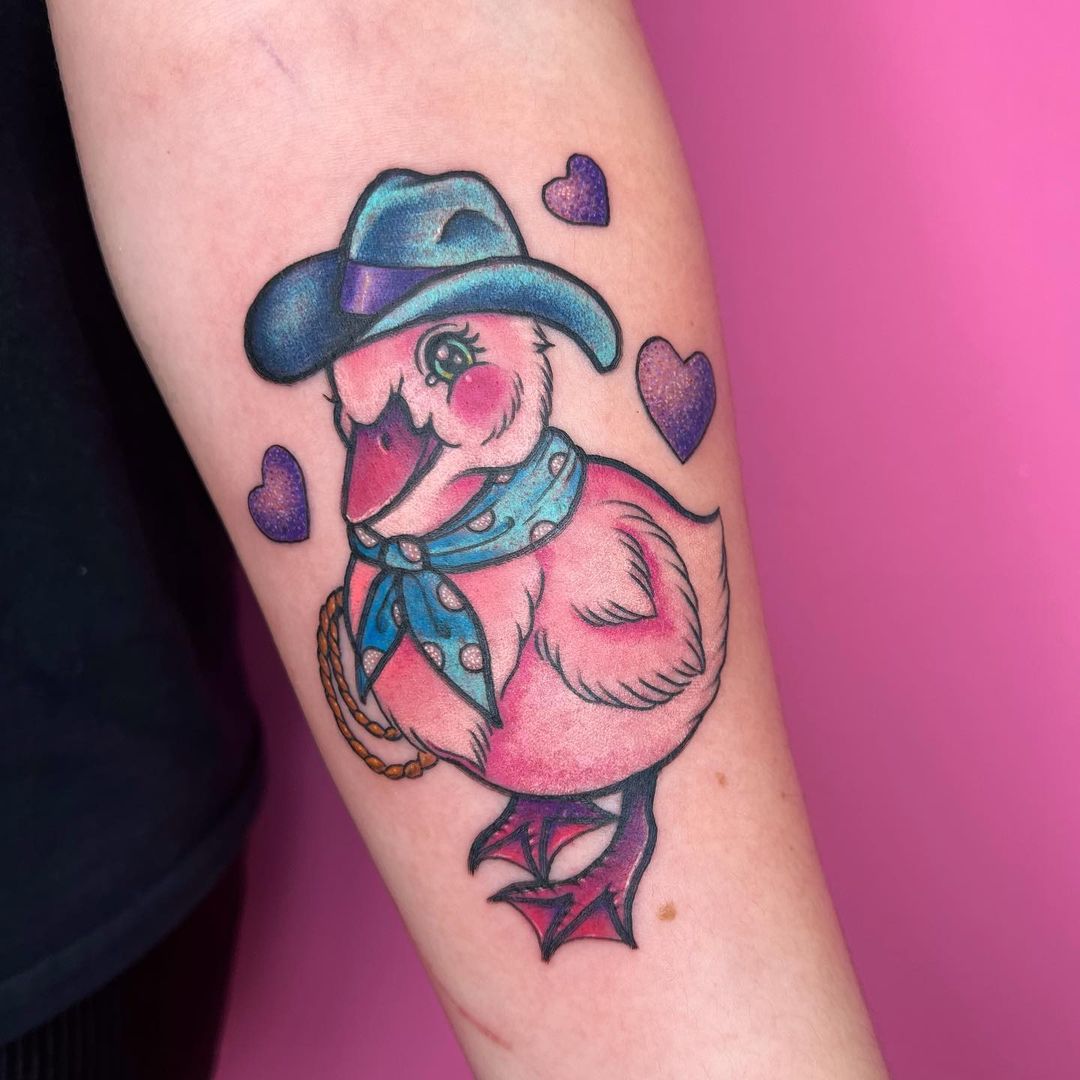
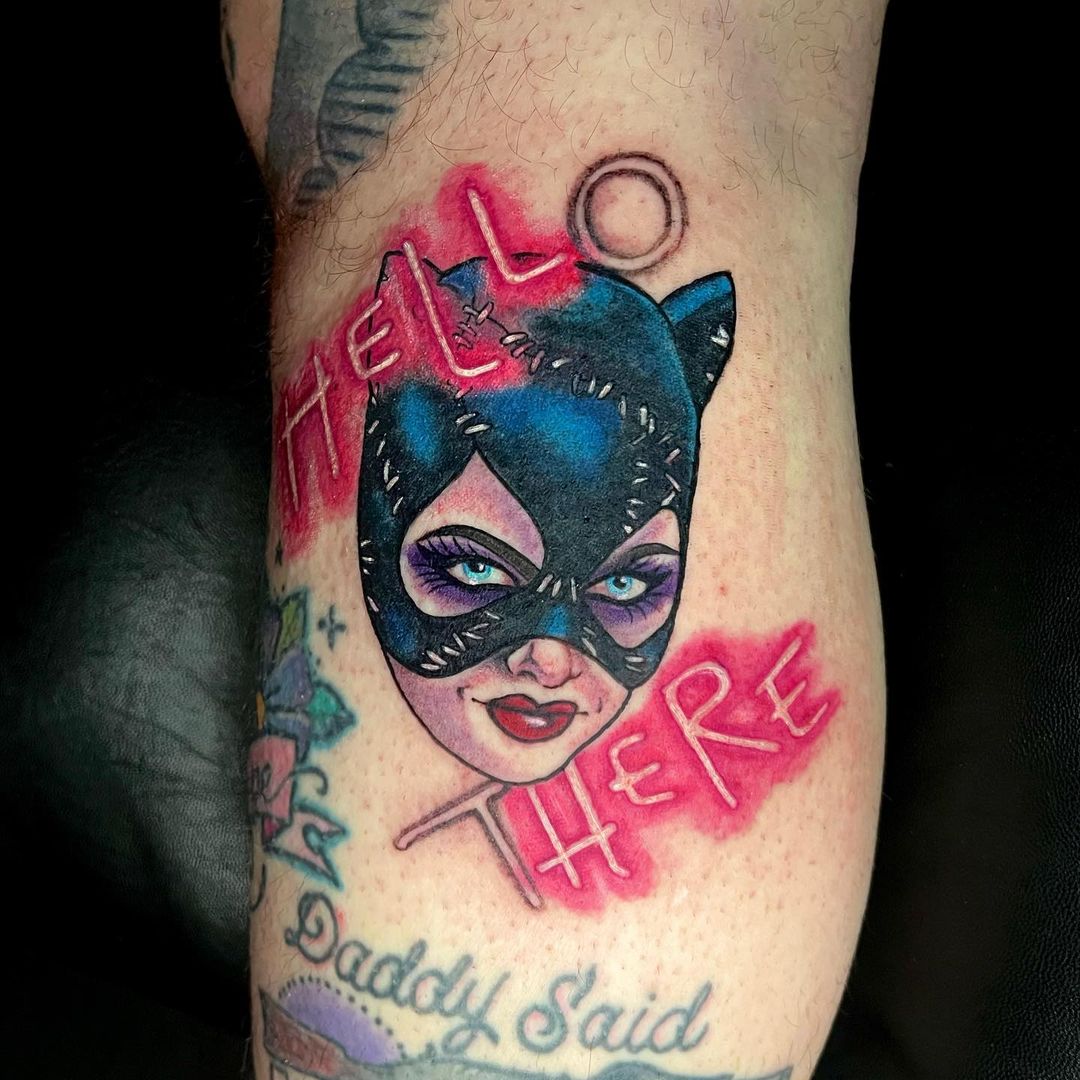
Q: Do you follow trends? If so, how do you stay updated on the latest tattoo trends and techniques?
Jes: I can’t say I follow any trends per se, but I’m always trying to learn new techniques and improve my work. I love watching other tattoo artists work and gain knowledge as best I can. I love sharing information and techniques with other artists, but at the end of the day everybody has their own skill set and techniques that work for themselves, it’s just a matter of constantly educating yourself.
Q: What’s the most unusual or memorable tattoo request you’ve ever received?
Jes: I can’t say that I have a most unusual request, as the term unusual is so subjective. Though I’m sure most people would find my tattoos unusual, for me, they’re not, they all have meaning. I find it unusual for people to be getting the same tattoos that they see on Pinterest, alas, it’s their body.
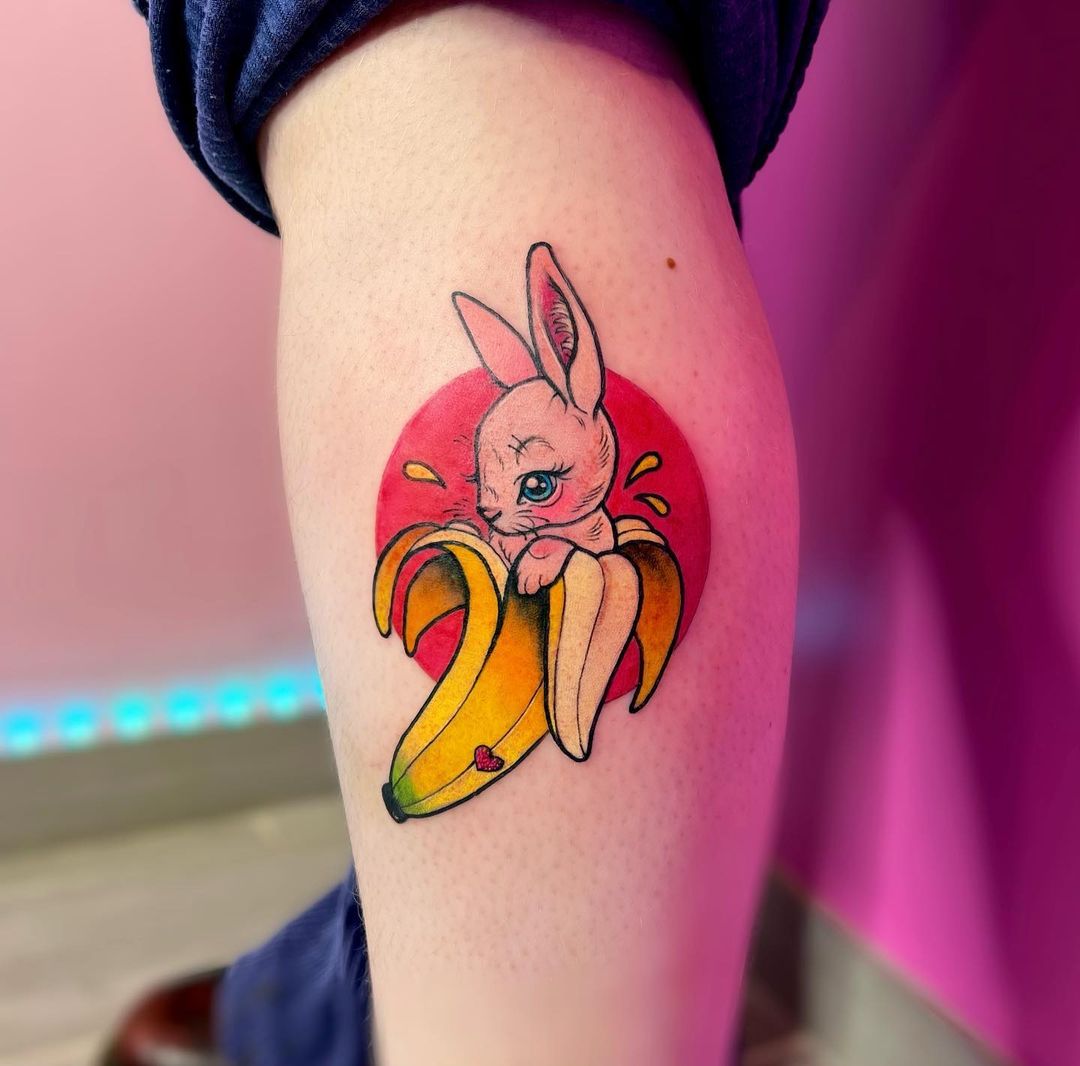
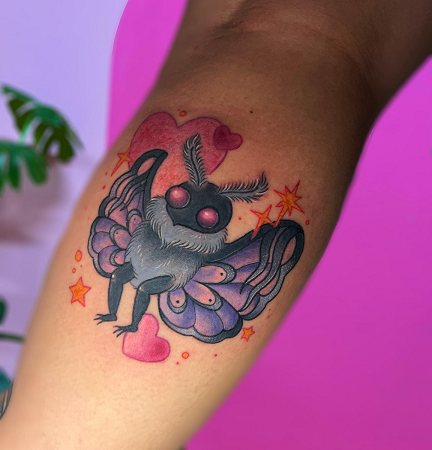
Q: What do you enjoy most about tattooing?
Jes: There is so much that I love about tattooing, I am so fortunate that I get to wake up every morning and get excited about going to work. It never feels like a job. I get to make or have fun, meet some cool people, and make people so happy.
I feel so privileged that people trust me to permanently modify their bodies with my art. I feel like the luckiest person in the world, honestly, every day. The only thing I don’t like about my job is hurting people*.
*Editor’s note: meaning physical pain during the tattooing process.
Q: Are there any tips you can give on how to make the tattoo process less painful?
Jes: The best way to go into a tattoo appointment is to be mentally prepared that your body is going to be put through pain. Breathing normally and trying to relax your body and your muscles as best you can will definitely help you get through it. Most often, we hold our breath or tense up our muscles, and that makes the pain worse.
I don’t mind if my clients use numbing cream beforehand. Sometimes it works, sometimes it doesn’t. However, a lot of tattoo artists will not tattoo skin that has numbing cream on it, but I don’t mind if it’s going to make my client better, I’m all for it.
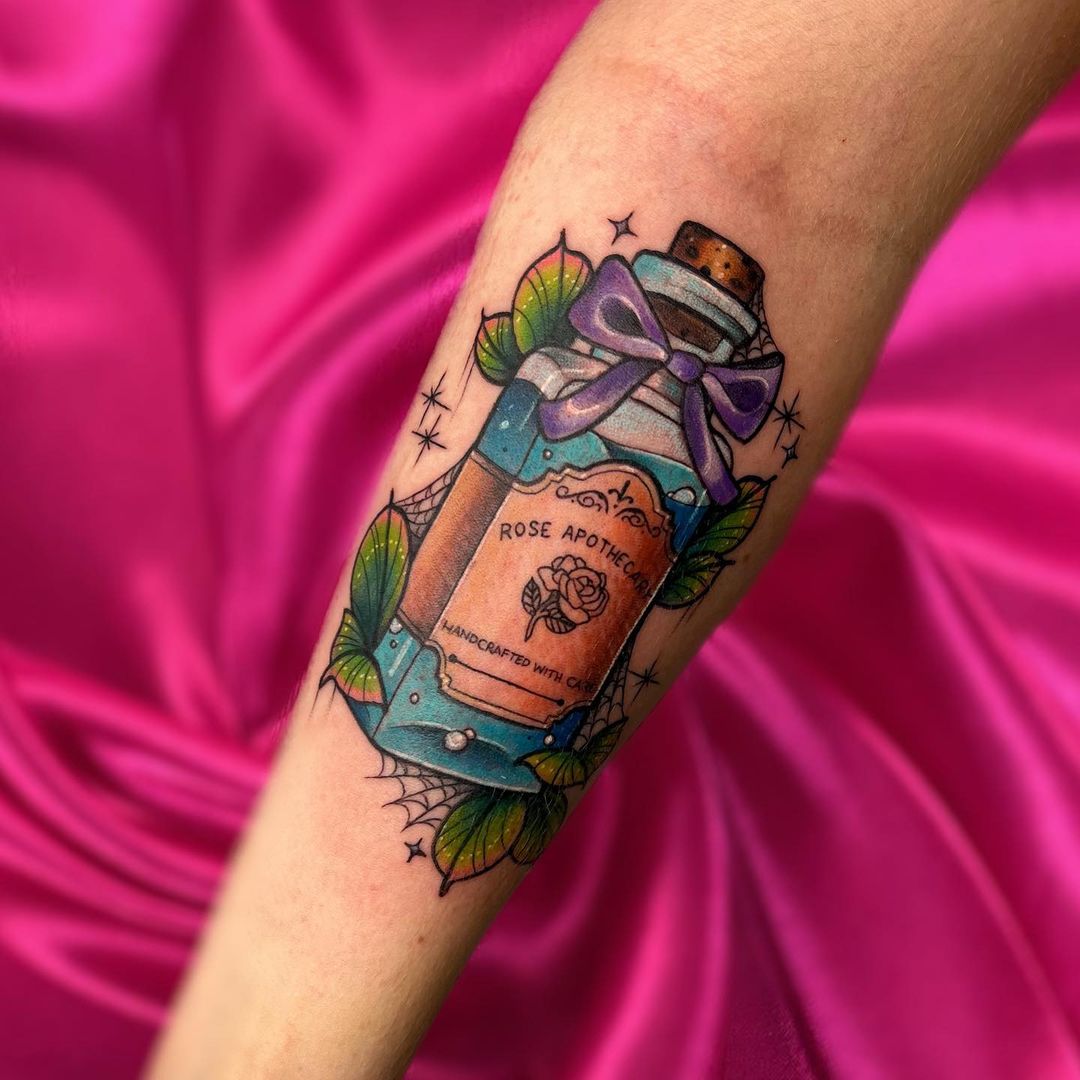
From InkMatch’s team experience, tattoo artists are often against using numbing creams because they offset pain levels. Prolonged tattooing can cause serious damage to the skin, and the pain is a clear indicator that it’s time to stop, as further procedures will only injure the skin. With numbing creams, this threshold is shifted, and even the simplest line can become a scar on the irritated skin.
Debunking Tattoo Misconceptions: Artist’s Response
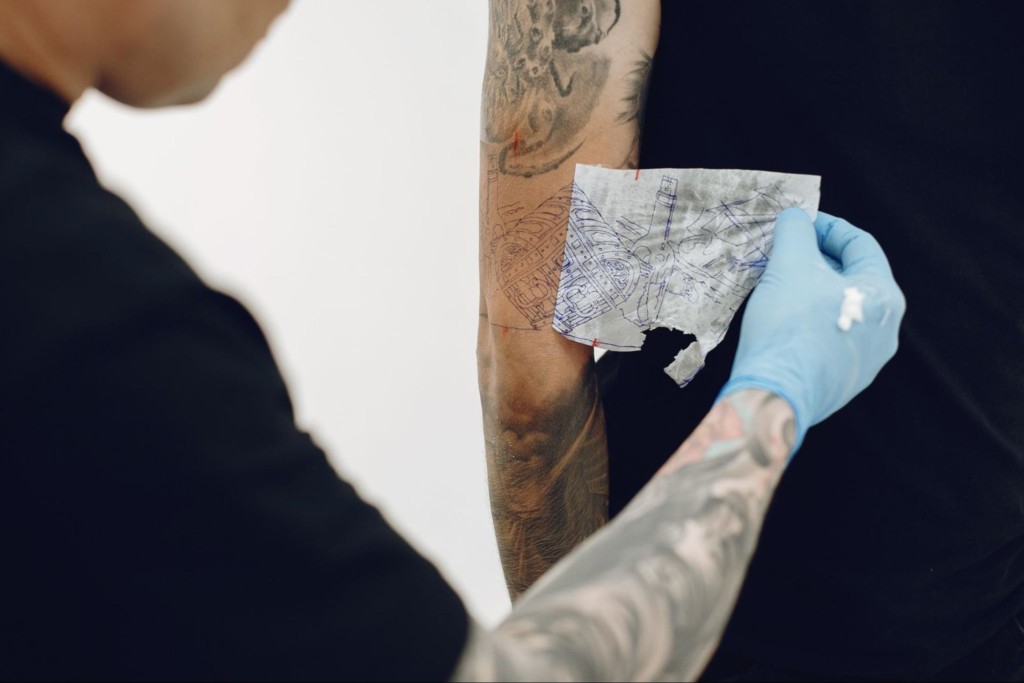
Contrary to popular belief, tattooing is far from an easy job, it is a demanding craft that requires not only artistic skill but also physical, mental, and emotional solidity.
At the forefront of the challenges faced by tattoo artists is the toll on their bodies. The hours spent hunched over clients, wielding a needle with precision, “Tattooing wreaks havoc on our bodies,” says Jessica.
Many artists experience conditions like carpal tunnelA condition where pressure on the median nerve in the wrist can cause numbness, tingling, and weakness in the hand and fingers. syndrome and sciaticaA condition where pain radiates along the sciatic nerve, usually from the lower back down one leg, causing discomfort and numbness., reminders of the physical strain inherent in their work. Tattooing is not just doing the actual tattoo. After a typical 8-10-hour workday, many other background processes make a tattoo artist’s work feel like 24/7.
As Jessica noted, “Our work doesn’t stop even when we arrive at home. We have to check updates on our new appointments, answer emails, and maybe look up new ideas to practice. We have to work hard on our social media and constantly make content to stay relevant. There is so much behind-the-scenes work that people don’t get to see tattoo artists.”
Challenges Faced by Women in the Tattoo Industry
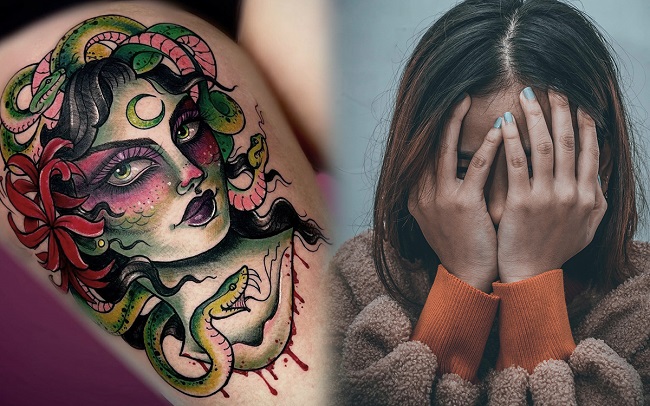
Being a woman tattoo artist is a challenging journey that requires a persistent drive to break through gender norms in a traditionally male-dominated industry. Unfortunately, the journey is not always easy.
Women have to face many challenges, especially when it comes to gaining respect and recognition for their work. “It was really hard to be taken seriously in this male-dominated industry, especially back then. When I got into tattooing 17 years ago, I faced nothing but challenges,” says Jessica.
Before getting into tattooing, Jessica wanted to get herself a tattoo first, but the first ideas that she chose for her body were rejected and laughed at. The tattoo artist didn’t want to claim something that they didn’t think was as cool or “girly” as something done by their hand.
It is difficult for women to even find a safe tattoo studio. The tattooing process itself is very fragile and requires complete trust in the artist. But what to do if the tattoo artist abuses their power?
There are many traumatizing stories online from victims who were abused by their tattoo artists. Just imagine what it’s like when an artist places one hand in a very wrong place and holds a tool in the other. You can’t move, only hold still, and endure.
It was these stories of unfortunate experiences that inspired Jessica Valentine and Cameron Cox to create Haven, bringing a positive change in the tattoo industry. The studio was established as an inclusive space for women, as well as members of the LGBTQ+ community. As Jessica says, “A lot of people get tattoos as a trauma response, as a way to reclaim their body.”
Summary
And those were the insights from our guest ink match — Jessica Valentine! She is a great example of someone who has successfully showcased that skill knows no gender, from the early spark of inspiration to the creation of Haven Studio.
We hope that this article will inspire many artists and tattoo enthusiasts to be more confident. Your ideas are valid, and Jessica’s studio can prove this, providing a safe space for all!
FAQ
? Who Was the First Female Tattoo Artist?
The title of the first female tattoo artist is often attributed to Maud Wagner. She began tattooing in the early 20th century and gained prominence for her skills as both a tattooist and a contortionist. Wagner’s contributions helped pave the way for more women to enter the tattoo industry.
? Can a Girl Be a Tattoo Artist?
Absolutely! Anyone with a passion for ink, creativity, and a steady hand can become a tattooer. It’s an art form that knows no gender boundaries.
? Is the Tattoo Industry Male-Dominated?
Historically, the tattoo industry has been male-dominated. However, in recent years, there has been a notable increase in the number of female tattoo artists, and many have gained recognition for their exceptional skills. While there are still challenges, the industry is becoming more inclusive and diverse.
? Where Can I Find a Safe Tattoo Shop?
Jessica Valentine’s tattoo shop, Haven Studio, is unique. While located in Brooklyn, no one is allowed to share its exact location. It’s a private tattoo studio that offers a safe space for women and members of the LGBTQ+ community to tattoo without fear of any possible traumatizing experience.
